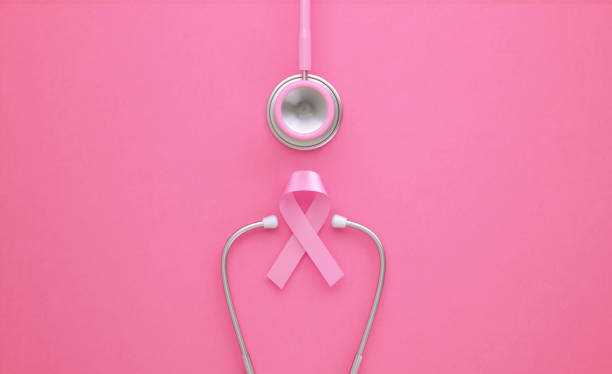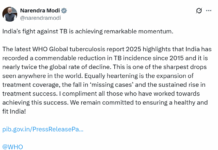What is Breast Cancer?
It is one of the most common cancers that affects women. When cancerous cells in the breast become tumors by multiplying, it causes breast cancer. A tumor might spread from the breast to any other parts of the body, this is the case in 80% of breast cancer cases.
Breast cancer mostly affects women who are above the age of 50. One of the interesting facts is, men can also develop breast cancer.
Common types of Breast Cancer
- Lobular breast cancer:
This type of cancer begins in the lobules or the milk producing glands and starts to spread to the nearby breast tissues.
- Ductal carcinoma in situ:
Like invasive ductal carcinoma, Ductal carcinoma also starts in the milk ducts of the breast, but it doesn’t spread beyond the milk ducts.
- Invasive (infiltrating) ductal carcinoma:
This type of cancer begins in the milk ducts and spreads to the nearby breast tissues.
Symptoms of Breast Cancer
Symptoms of breast cancer are often not noticeable. But these are some of the symptoms that are commonly seen,
- Change in feel or look of the skin on the nipple or breast, like being puckered, dimpled, inflamed or scaly.
- Changes in breast shape, size or contour.
- The colour of a part of the breast might differ like it might look purple, red, or rather darker compared to the other parts of the breast.
- One might feel a lump or mass in the size of a small pea in the breast.
- There might be a hardened area like a marble under the skin.
- Fluid discharge from the nipple, that is either clear or blood stained.
- Sometimes the lump or the thickening on the breast or underarms that might only persist through the menstrual cycle.
Causes of Breast cancer
- Family history
- Genetics
- Age above 50
- Consumption of alcohol
- Smoking
- Gender (women)
- Hormone replacement therapy
- Obesity
- Radiation exposure
What a good breast cancer health insurance should consist of?
These are some of the key elements that a good breast cancer health insurance should consist of,
- It should cover for the regular screenings of mammograms as advised by the doctor.
- Testing for any genetic markers or testing for BRCA2 and BRCA1.
- Coverage for different types of biopsies for the confirmation of cancer.
- Coverage for MRI, ultrasound or any other imaging to confirm the diagnosis.
- Coverage for different types of treatments like lumpectomy, reconstructive surgery, mastectomy, chemotherapy, hormonal therapy, radiation therapy, and targeted therapy.
- The plan should also include supportive care like coverage for nutritional counselling like dietitians, pain management like medications and therapies, mental health counselling like support groups and therapy.
- It is important that the plan also covers the cost of follow-up care like appointments, mammograms or imaging as require.
- A good cancer insurance would include coverage for participating in clinical trial that might open up new possibilities for treatments.
- If the treatment cannot be localized then the coverage should include travel expenses related to the treatment.
- Inclusion of medications like anti-nausea and pain relief is a very important part of the coverage.
- Make sure to know that the pre-existing conditions related to breast cancer doesn’t affect the coverage cost.
It is better to know what the specific terms and conditions and factors like deductibles, limits, exclusions, out-of-pocket maximum, and copays. are when purchasing a insurance plan for breast cancer
What a Breast Cancer Health Insurance Plan Might Not be Covering
Health insurance for breast cancer might have certain limitations and exclusions. These are some of the general areas that may not be covered in the insurance policy.
- Many insurance plans might not cover for investigational or experimental treatment or therapies. This includes a few clinical trials.
- Reconstructive surgery after mastectomy is generally covered with an affordable health insurance plan but it might not cover cosmetic procedures that might entirely be aesthetic.
- Alternative treatment options for breast cancer like herbal remedies, acupuncture or any other such therapies are not covered.
- The medications not prescribed by the doctor like over-the-counter medications, or products that might help with the side effects, or supplements might not be covered in the insurance plan.
- If the required treatment is made outside of the insurance network, depending on the plan the coverage might be excluded or limited.
- The screenings and tests that are not recommended by guidelines might not be covered, eventhough the plan might cover preventive screenings.
- The plan might or might not cover the symptoms for pre-existing conditions before the purchase of the policy.
- Coverage related to travel and accommodation related to the treatment might not be covered.
- During the initial treatment phase, few imaging tests or follow-up services might not be covered.
Conclusion
It is very important to choose the right breast cancer health insurance as it affects both the physical and mental health of a person. It is important to study and know about the terms and conditions of the policy that one is purchasing to understand the coverage.
Also Read: Breast Cancer Awareness Month 2024: No One Should Face This Battle Alone







